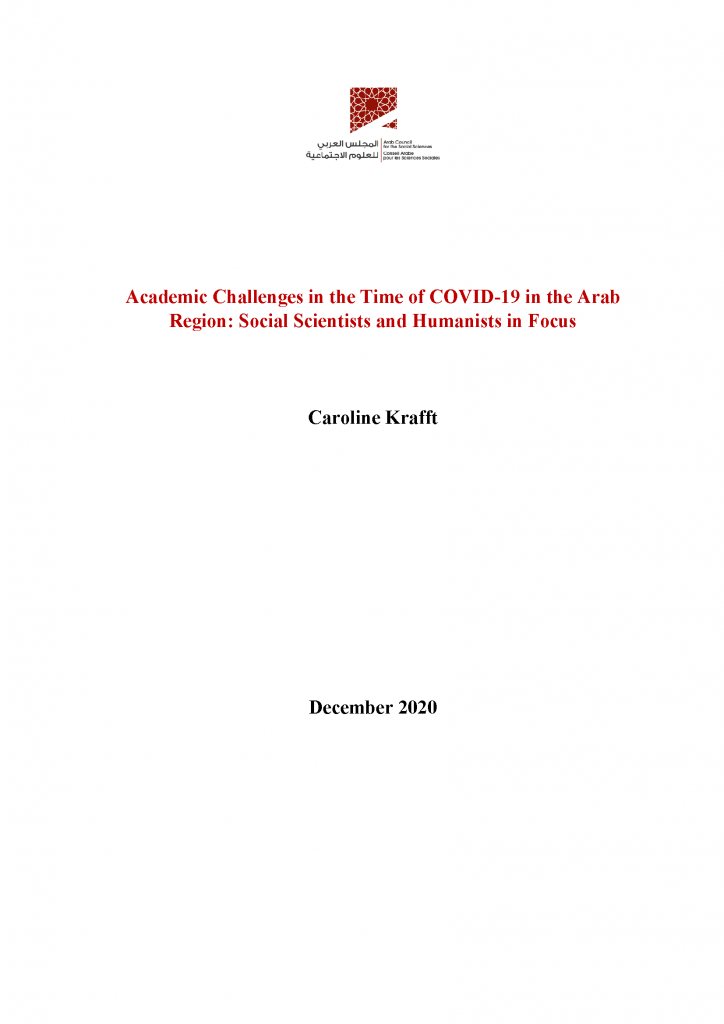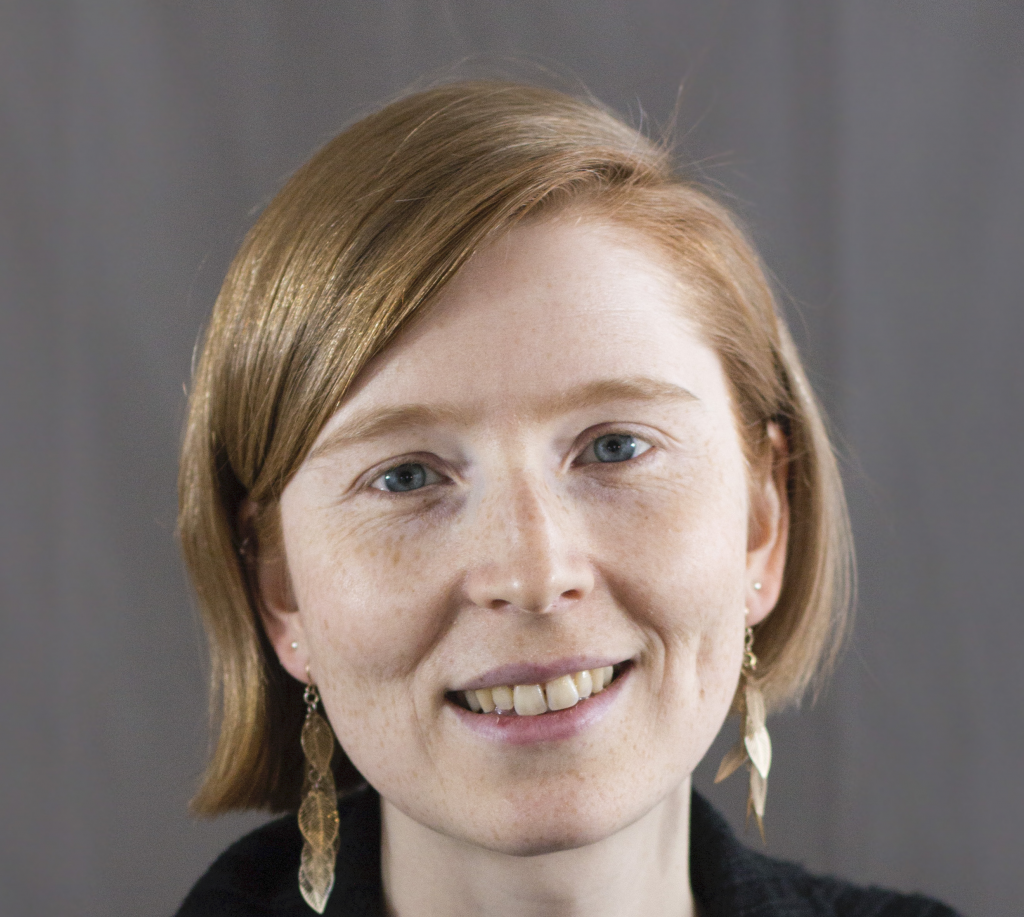
The COVID-19 pandemic shut down schools and universities around the world, interrupting knowledge creation and learning. The pandemic has been particularly difficult for scholars in the Arab world, many of whom already faced a challenging scholarly environment prior to the pandemic. A recent report from the Arab Council for the Social Sciences explores the challenges facing Arab social sciences and humanities scholars in the COVID-19 era. The report draws on unique survey data from scholars throughout the Arab region.

Academic Challenges in the Time of COVID-19 in the Arab Region: Social Scientists and Humanists in Focus
By Caroline Krafft*
With Sydney Kennedy, Ruby Cheung, Solveigh Johnson, and Adriana Cortes-Mendosa. Issued by the Arab Council for Social Sciences.
The report is available for download in English, French or Arabic.
When the pandemic started, the courses Arab scholars were teaching in spring 2020 were often moved online (76%) or became hybrid (part in-person, part online), but some were cancelled (12%). Courses in the fall of 2020 were most commonly hybrid (38%) or online (25%) with some returning to in-person like normal (9%), or often in smaller groups (8%). Students and faculty faced a large number of difficulties moving online. Students were distracted and had technology challenges. Half of faculty reported that students learned less online, even though online teaching was more time consuming. The COVID-19 teaching challenges and learning loss are concerning for a generation of Arab students and potential future scholars.
The entire research pipeline of knowledge creation has been disrupted by the pandemic. Almost half (48%) of Arab scholars reported their ability to publish decreased. Works in progress were even more affected, with 55% of scholars reporting their ability to engage in works already in progress decreased.
The COVID-19 pandemic and associated safety measures made undertaking data collection and research particularly difficult for the social sciences and humanities, especially those disciplines, such as anthropology, that engage in in-person fieldwork. Almost half (46%) of scholars postponed research travel and a third (32%) had their sites or materials become unavailable. Those scholars whose work typically involves in-person data collection frequently had their data collection delayed (60%) or cancelled (12%). Although some scholars switched to online/phone-based data collection easily (15%) more often they faced online/phone quality problems (18%) or found online/phone research slowed their work (23%).
Female scholars disproportionately became primary caregivers for their young children and teachers for their school-age children. Almost three-fourths (72%) of female scholars suddenly became primary caregivers and only a small fraction (7%) of female scholars reported their spouse became the primary caregiver. In contrast, male scholars with young children were much more likely to report no change in care arrangements (46%) — primarily because their spouse was the primary caregiver.
Increased hours of caregiving for women scholars with children limited their ability to engage in scholarly work and may ultimately disrupt and derail their careers. These challenges facing women caregivers and scholars are not unique to the Arab region; for instance, a new report highlights that women in science, technology, engineering and mathematics fields in the Asia-Pacific region also faced heightened challenges. The pandemic has exacerbated gender inequality for scholars around the world.
In addition, the impact of COVID-19 on Arab scholars varied by country, with those scholars in countries struggling with conflict or with limited infrastructure facing particular difficulties. Transitioning teaching or research online depends on having not just reliable internet, but reliable electricity. Scholars and students struggled to connect in the new online world. COVID-19 thus created new inequalities that compounded pre-existing challenges.
Although the pandemic primarily created challenges for Arab scholars, it did also open up some new opportunities. Scholars had new opportunities to access materials, journals, trainings and webinars online. Almost half (43%) attended online trainings and almost three-quarters (71%) attended webinars.
Scholars have also begun important new research about the impact of the COVID-19 pandemic on the economy and society. More than half (51%) of Arab social science and humanities scholars started research related to COVID-19 and its impact. The social sciences and humanities have important lessons to offer in the pandemic, for instance on the psychology of vaccination decisions, lessons from history on pandemics, or economic policies to help recovery. Ensuring social sciences and humanities scholars have the support they need to continue their work in the pandemic era can help support recovery from the pandemic.

Caroline Krafft
Dr. Caroline Krafft is an associate professor of economics at St. Catherine University. She received her master’s degree in public policy from the University of Minnesota’s Humphrey School of Public Affairs and her PhD from the Department of Applied Economics at the University of Minnesota. Her research examines issues in development economics, primarily labor, education, health, and inequality in the Middle East and North Africa. Current projects include work on refugees, labor market dynamics, life course transitions, human capital accumulation, and fertility.
Photo by Green Chameleon on Unsplash.